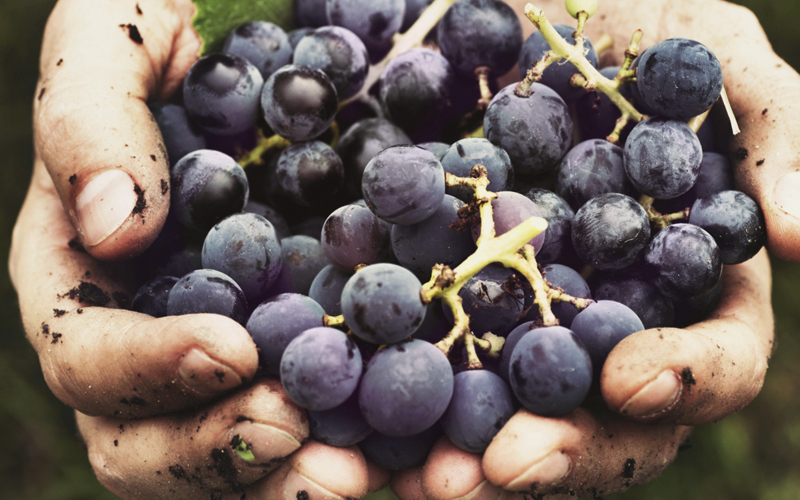
by guest blogger Leah Zerbe, online editor for RodaleNews.com
Here’s a not-so-fun fact you need to know: Even if you rinse, scrub, and peel your fruits and veggies, harmful—sometimes even brain-damaging—pesticides often remain.
That’s because many weed- and bug-killing chemicals on the market are systemic, meaning they are taken up inside of the food you eat. In fact, Roundup, a weedkiller popular for use on crops and American lawns, in playgrounds, and in parks has been detected in everything from SunChips and ICU feeding-tube formula to Froot Loops and breast milk.
Clearly, our food system has gotten out of control.
A new analysis from Environmental Working Group (EWG) found nearly two-thirds of the more than 3,000 produce samples tested by the U.S. Department of Agriculture (USDA) in 2013 contained pesticide residues—no wonder more and more people are making organic food a priority.
In fact, USDA economists reported that organic produce sales spiked from $5.4 billion in 2005 to an estimated $15 billion last year and climbed 11 percent between 2013 and 2014.
Some highlights from EWG’s Shopper’s Guide to Pesticides in Produce:
- USDA tests found a total 165 different pesticides on thousands of fruit and vegetables samples examined in 2013.
- A single grape sample tested positive for 15 different pesticides.
- Nonorganic apples tended to have the most pesticide residues because they are chemically treated before and after harvest to preserve the fruit longer.
- The average potato had more pesticides by weight than any other type of produce.
To be clear, this shouldn’t scare you away from eating fruits and veggies—in fact, proposed new government eating guidelines suggest you should opt for a more plant-based diet.
The “Dirty Dozen Plus” and “Clean 15” lists (see below) are meant to encourage people to source fewer chemically treated foods. (And hopefully, persuade more farmers to opt for organic growing methods.)
It is important to note, though, that choosing organic as often as possible is your best defense against harmful chemicals. The powerful side effect of choosing organic is you’re also protecting farmworkers and their families from toxic chemical exposure. Foods on the “Clean 15” list often contain fewer different pesticides, but please don’t mistake that for pesticide-free. (And the sweet corn and papayas on the “Clean 15” list could in fact be GMO varieties unless you buy organic.)
“Dirty Dozen Plus” List
- Apples
- Peaches
- Nectarines
- Strawberries
- Grapes
- Celery
- Spinach
- Sweet Bell Peppers
- Cucumbers
- Cherry Tomatoes
- Snap Peas (Imported)
- Potatoes
+ Leafy Greens
+ Hot Peppers
(EWG included + items because they routinely harbored particularly toxic insecticides shown to harm health.)
“Clean 15”
- Avocados
- Sweet Corn
- Pineapples
- Cabbage
- Sweet Peas (frozen)
- Onions
- Asparagus
- Mangos
- Papayas
- Kiwi
- Eggplant
- Grapefruit
- Cantaloupe
- Cauliflower
- Sweet Potatoes
 Leah Zerbe is online editor for Rodalenews.com. Prior to working at Rodale, she was the senior online editor at NBCPhiladelphia.com, where she headed up the station’s online “Going Green” initiative, wrote about center-city crime and traffic jams, and blogged about her beloved Philadelphia Phillies. She and her husband run a sustainable organic farm in Schuylkill County, where they grow vegetables, strawberries, herbs, and flowers and raise heritage-breed chickens.
Leah Zerbe is online editor for Rodalenews.com. Prior to working at Rodale, she was the senior online editor at NBCPhiladelphia.com, where she headed up the station’s online “Going Green” initiative, wrote about center-city crime and traffic jams, and blogged about her beloved Philadelphia Phillies. She and her husband run a sustainable organic farm in Schuylkill County, where they grow vegetables, strawberries, herbs, and flowers and raise heritage-breed chickens.




I try to always buy organic, but thank you for this list. It will keep me aware of those “15” that I need to avoid. Since I don’t eat meat, fish or fowl – fruits and veggies are very important for my diet. I appreciate the time you take to gather and share this information with us!
I am disappointed that they are putting soy in everything you eat. Now I am allergic to soy in any form. It is now in dog food and cat food. I would like to know if there is soy sprayed plants? I haven’t been able to find the answer to this.
I think the best way to defeat bad legislation is to get behind anyone who supports organic. I feel that if you can’t fight for whats right, then get behind someone who is.
How about Bud-Nip on sweet potatoes? Isn’t it very potent stuff?
I gave up trying to figure out what was clean and what was dirty. I assume the worst and shop organic, local organic if possible at all times. It’s a huge cost to me and my family from a pocketbook perspective, but it’s a bigger cost to our health. I find as long as I meal plan and don’t waste produce (like most people do, myself included) it’s affordable and fits into my budget.